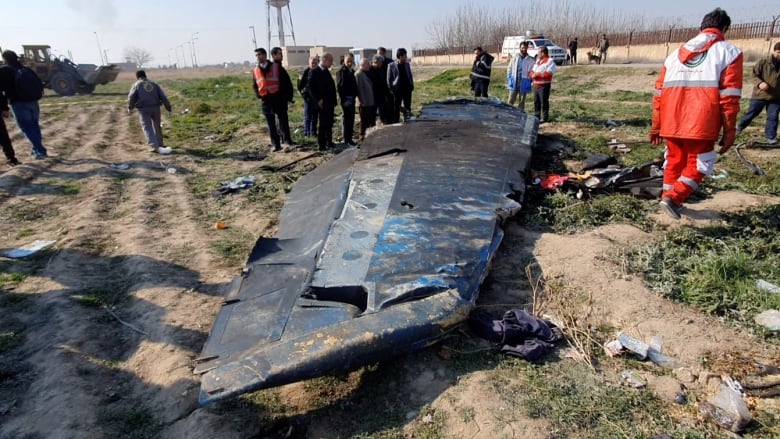A newly released audio recording suggests Iran’s highest authorities allowed commercial airliners to fly in and out of Tehran during the period of intense military activity when Flight 752 was shot down — because closing the airspace would have given away the regime’s plan to strike U.S. military bases in Iraq.

A newly released audio recording suggests Iran’s highest authorities allowed commercial airliners to fly in and out of Tehran during the period of intense military activity when Flight 752 was shot down — because closing the airspace would have given away the regime’s plan to strike U.S. military bases in Iraq.
CBC News obtained a recording of a 91-minute conversation that took place March 7 between a victim’s family member in Canada and Hassan Rezaeifar, who was appointed the head of Iran’s investigation into the downing of the Kyiv-bound Ukraine International Airlines aircraft. The crash of Flight 752 killed 176 people, including 57 Canadians.
The recording, which reveals a number of damning details about the downing of the plane and Iran’s response, is also in the custody of Canadian authorities.
Less than 24 hours after CBC News emailed Rezaeifar a copy of the recording and requested a response Thursday, news broke that he had been removed from his role overseeing Iran’s investigation into the downing of Flight 752. Families in the United Kingdom — which has an embassy in Iran — were notified this morning that a new investigator is now in charge.
Airspace kept open to avoid signalling attack: Rezaeifar
In the recording, Rezaeifar said closing the airspace over Tehran could have exposed Iran’s pending ballistic missile attack on U.S. air bases in Iraq in advance. That attack was retaliation for the United States’ killing of Iran’s top military leader, Gen. Qasem Soleimani.
“Some say we should have cleared the airspace,” Rezaeifar said in Farsi on the recording. “The National Security Council is in charge.
“But let’s say we had cleared the airspace. Wouldn’t [it] give away our imminent attack?”
Flight 752 was shot down just four hours after the strike on the U.S. base. Rezaeifar added that closing the airspace could have meant cancelling flights. Iran earns hundreds of thousands of dollars daily in fees for allowing flights in its airspace.
“Ok, let’s assume we had delayed the Ukrainian flight for ten hours. Wouldn’t it have cancelled all other flights after?” said Rezaeifar on the call.

Thomas Juneau, an associate professor of international affairs at the University of Ottawa and former analyst of Middle East affairs, said Iran has been insisting the investigation will be independent — and the audio recording proves it’s not.
“Having the lead investigator saying those things on that phone call really damages that fiction,” said Juneau. “By removing him, they’re trying to protect that facade.”
Passengers used as human shields, says expert
Payam Akhavan, a Canadian-Iranian international law professor at McGill University and former UN prosecutor at The Hague, also reviewed CBC’s copy of the recording. Akhavan argues the audio is a new piece of evidence showing the highest levels of Iran’s government chose to keep planes full of people in the sky on a day of intense military activ

